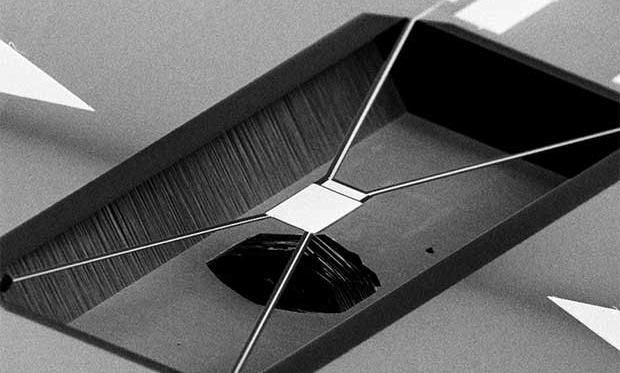IBM researchers have established experimental proof of a previously difficult-to-prove law of physics, and in so doing may have pointed to a way to overcome many of the heat management issues faced in today’s electronics. Researchers at IBM Zurich have been able to take measurements of the thermal conductance of metallic quantum point contacts made of gold. No big deal, you say? They conducted measurements at the single-atom level, at room temperature—the first time that’s ever been done.
These measurements confirm the Wiedemann–Franz law, which predicts that the smallest amount of heat that can be carried across a metallic junction — a single quantum of heat — is directly proportional to the quantum of electrical conductance through the same junction. By experimentally confirming this law, it can now be used with confidence to predict and to explore nanoscale thermal and electrical phenomena affecting materials down to the size of few atoms or a single molecule.
“Although the Wiedemann–Franz law is predicted, and should be valid for certain metals, it has turned out to be difficult to prove it when you go to the nanoscale,” explained Bernd Gotsmann, an IBM scientist and one of the lead researchers on this work, in an e-mail interview with IEEE Spectrum. “We think the difficulty is mainly a sign of the challenges related to the measurement of thermal transport on small scales.”









Comments are closed.